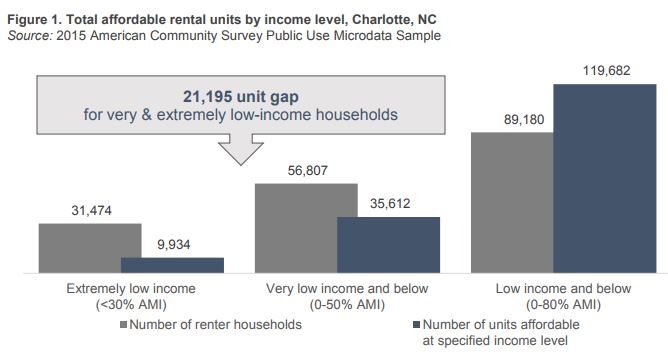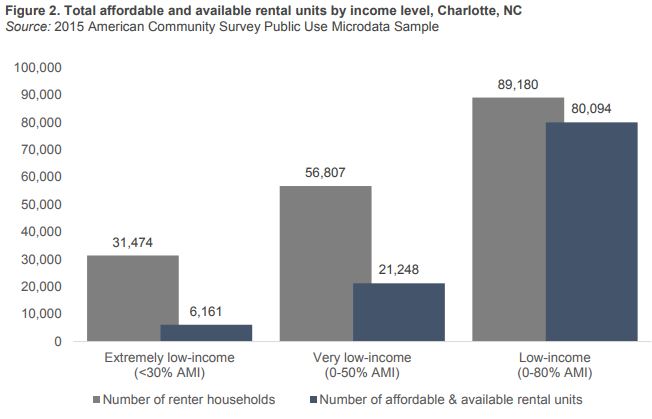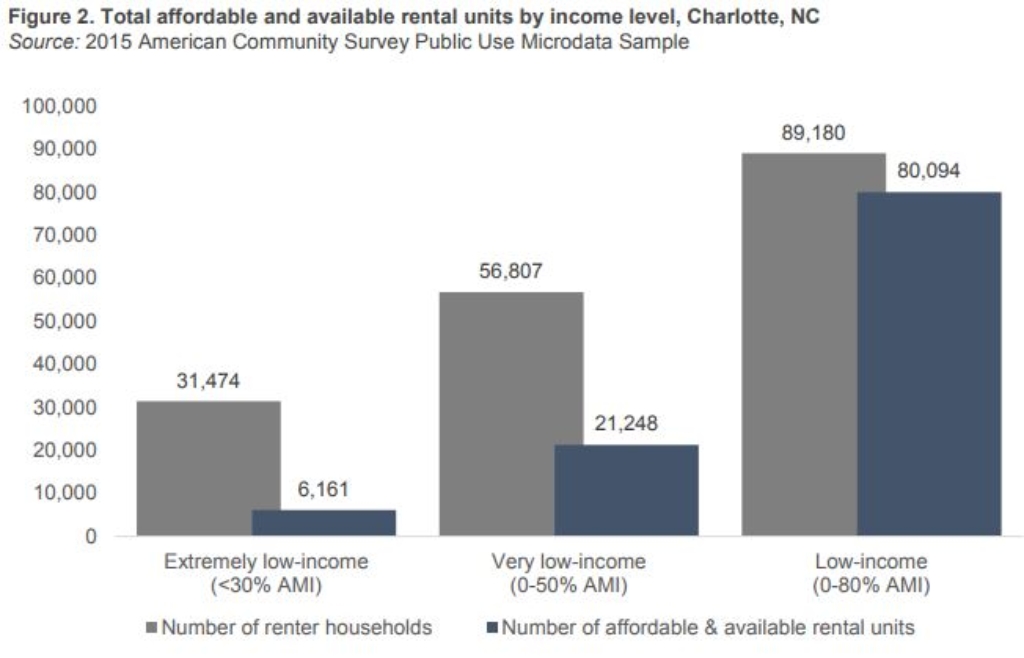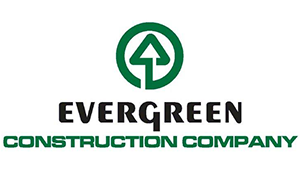
We’ve all seen the devastation wrought by Harvey in Texas, and are now watching Irma barrell through the islands on its way to Florida. The sight of the streets of America’s fourth largest city navigated by boats rescuing stranded Texans was a harrowing sight. An entire city was displaced, and it is possible we will see more of the same in the coming days. FEMA recently reported that in Houston, over 560,000 families have already requested housing assistance and about 53,000 more are staying in government funded hotel rooms. What cities could possibly absorb that many people?
This makes Charlotte’s housing gap for any family making below $45,000 a year is 30,281 units
Many will only need temporary shelter. Some have the resources (and insurance) to return and rebuild, but our experience with Katrina teaches us that many will not. New Orleans lost about 200,000 residents to other cities, as many families could not afford to return. What increased the heartbreak in Houston was that it had absorbed so many of those Katrina refugees — families that are once again displaced by wind and water. What happens to those who cannot afford to return?
Are we able to house those who might add themselves to the number relocating to North Carolina communities? What we find is that with our current growth models, North Carolina cities are having difficulty housing existing populations, much less planning for new people. A Charlotte Observer editorial commented recently on an Enterprise report released today that our greatest need is with Extremely Low- and Very Low-Income populations who face a deficit of 21,195 units. I cannot agree more. I recently wrote about this precise problem in Wake County.

What the editorial seemed to miss, though was the rest of Enterprise’s analysis. The situation is more dire than it seems. You’ll see from the chart above that there are more than enough units affordable to families with Low Income. However, if you read through to the end of the report, you’ll find that because higher income individuals are occupying housing that would otherwise be affordable to Low-Income families, there is a gap there as well of 9,086 units. This makes Charlotte’s housing gap for any family making below $45,000 a year is 30,281 units[1] [2] .

We need to do a better job of ensuring housing for our populations that need it most. We need stock across the affordability continuum. In particular we need creative and courageous investment for those with the greatest need. As people move to our communities, either seeking opportunity or fleeing hurricane winds and rising flood waters, we need to do a better job of building the diverse housing stock to welcome them.
Last but not least, I would like to take a moment to introduce you to our new intern from UNC School of Social Work, Amber Likta. Amber, a native of Rose Hill, North Carolina, is a graduate student at Duke Divinity School and the School of Social Work at UNC-Chapel Hill. She brings experience in working with families in homelessness, serving in children’s ministry and literacy programs, and serving as a chaplain in the hospital and homeless shelter settings.

Also, each year at the NC Affordable Housing Conference we recognize individuals who have gone above and beyond the call of duty to advocate for affordable housing. Please click here to learn more about the award categories and to find out how to nominate someone who stands out.
We encourage you all to join in our efforts to ensure every North Carolinian has a safe, decent and affordable place to call home.








